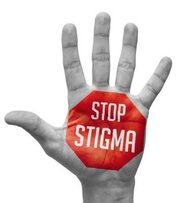 Tags: Detailing Visits, Stigma As we reflect on the two major public health topics we’ve been focusing on as we’ve traveled to public health departments across the United States, we’re learning that the public health detailers we’ve been training are discussing much more than just evidence with the clinicians they’re meeting. When we train new health educators on the methods of interactive, 1:1 education, we’re asked most often to customize our curriculum to cover two of the most highly stigmatized topics today: the opioid crisis, and HIV prevention. As the topic of stigma has come up at every straining we’ve implemented this year, our training team has added dedicated time to our trainings to discuss ways to address clinician stigma that arises during 1:1 detailing visits. So, what, exactly, is stigma? It’s defined as “a mark of shame or discredit,” and appears in numerous ways, including through labeling, stereotyping, discrimination, and social inclusion. One of the biggest myths about stigma is that some people carry it, and some people don’t. However, stigma is not binary, and we all possess the ability to stigmatize another group that we perceive to be an ‘outsider’ group. Historically, stigma has appeared mainly in the form of social inclusion, with those identified as ‘others’ being treated as societal outcasts. The interactive approach of AD is well-suited to address clinician stigma by creating a space in which the detailer can ask the kinds of needs assessment questions that can identify the source of these stigmatizing perspectives. When a 1:1 visit is facilitated by a skilled clinical outreach educator who is curious about clinicians’ experiences and genuinely wants to help implement sustainable change, many clinicians feel comfortable in sharing beliefs, identifying patterns, and building relationships based on trust and service. Our language and beliefs will continue to evolve as we continue to learn, encourage one another, and be empathic. We can do this by holding each other accountable in a non-punitive way, pairing our best intentions with education to use inclusive, supportive language, and committing to holding one another accountable by identifying moments when we witness stigma, in order to correct, reflect, and move forward. We’ve seen the potential for change; the medical community’s understanding of substance use disorder and HIV prevention has improved significantly over the past few decades. Outside of our training settings, where else can we start? We’d very much like to hear from you, our community members, about how you’ve experienced or witnessed stigmatizing behavior as it has occurred within the healthcare setting. If you’re an outreach educator, tell us about a time you’ve seen stigma arise from a clinician’s perspective, and what you thought was behind it. If you’re a patient or a provider, talk to us about ways in which you’ve experienced or carried stigma. Keeping a dialogue open and encouraging sharing is one of many steps towards a connected medical community that embraces its patients, clinicians, educators, and supporters with compassion, clarity, and support.
Thanks for reading, and please share your thoughts and experiences in the comments section below! The NaRCAD Team
0 Comments
Leave a Reply. |
Highlighting Best PracticesWe highlight what's working in clinical education through interviews, features, event recaps, and guest blogs, offering clinical educators the chance to share successes and lessons learned from around the country & beyond. Search Archives
|
